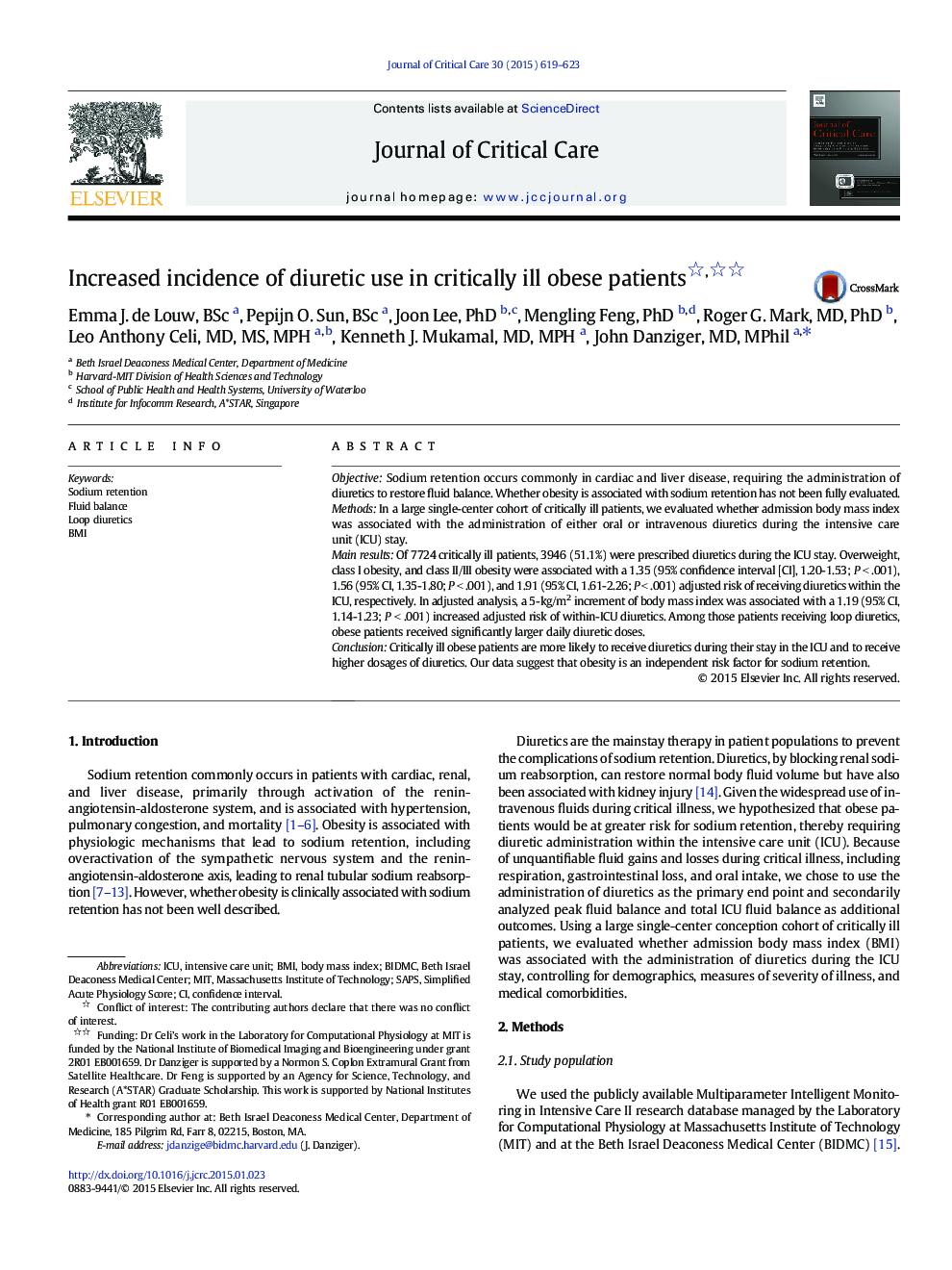| Article ID | Journal | Published Year | Pages | File Type |
|---|---|---|---|---|
| 5885614 | Journal of Critical Care | 2015 | 5 Pages |
ObjectiveSodium retention occurs commonly in cardiac and liver disease, requiring the administration of diuretics to restore fluid balance. Whether obesity is associated with sodium retention has not been fully evaluated.MethodsIn a large single-center cohort of critically ill patients, we evaluated whether admission body mass index was associated with the administration of either oral or intravenous diuretics during the intensive care unit (ICU) stay.Main resultsOf 7724 critically ill patients, 3946 (51.1%) were prescribed diuretics during the ICU stay. Overweight, class I obesity, and class II/III obesity were associated with a 1.35 (95% confidence interval [CI], 1.20-1.53; P < .001), 1.56 (95% CI, 1.35-1.80; P < .001), and 1.91 (95% CI, 1.61-2.26; P < .001) adjusted risk of receiving diuretics within the ICU, respectively. In adjusted analysis, a 5-kg/m2 increment of body mass index was associated with a 1.19 (95% CI, 1.14-1.23; P < .001) increased adjusted risk of within-ICU diuretics. Among those patients receiving loop diuretics, obese patients received significantly larger daily diuretic doses.ConclusionCritically ill obese patients are more likely to receive diuretics during their stay in the ICU and to receive higher dosages of diuretics. Our data suggest that obesity is an independent risk factor for sodium retention.
